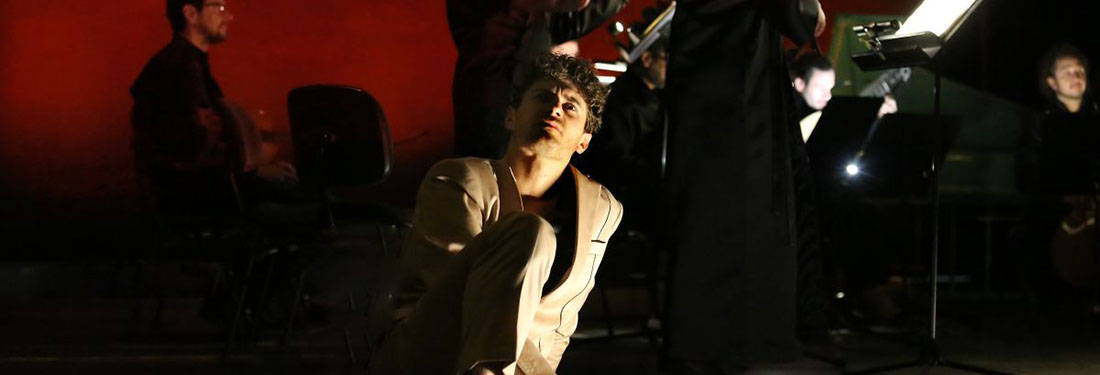
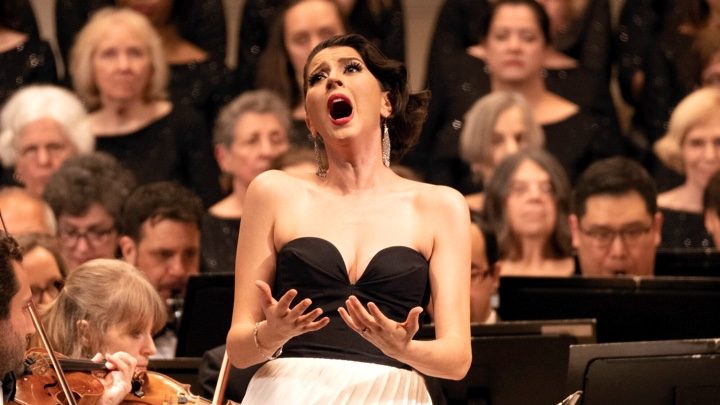
It’s been almost exactly 40 years (gulp) since I attended my first such blowout—the gala celebrating the 25th anniversary of Lyric Opera of Chicago which I recently wrote about here.
I’ve gone to quite a number since including my very first visit to the Carnegie Hall when Opera Orchestra of New York in 1982 marked its tenth season. That gathering was hosted by Tony Randall who was mercilessly booed by a cadre of rowdy zealots protesting the cancellation of no fewer than four of the evening’s announced luminaries including Tatiana Troyanos and Christiane Eda-Pierre. It was my bewildering first exposure to true NYC opera fanaticism.
Last night’s Tucker event had (remarkably) no cancellations at all and no host besides Barry Tucker’s always endearing opening remarks thanking both the audience and participants.
Even before he spoke, we were served notice that this was going to be a special evening as conductor James Gaffigan led members of the Met orchestra in a tautly exciting overture to Verdi’s Les Vêpres Siciliennes. Gaffigan’s commanding presence on the podium consistently made all the difference as often these Tucker affairs are limply led by singer-friendly routiniers.
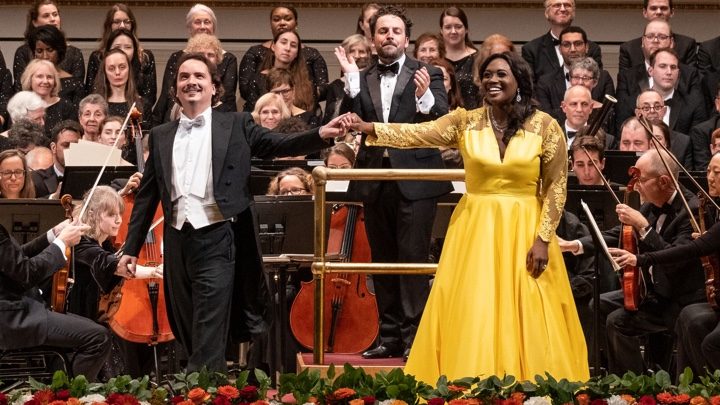
There was one reminder of a past Tucker gala when Angela Gheorghiu showed up clearly not having rehearsed and swanned her self-indulgent way through two verismo arias (gorgeously I must admit) while not paying the slightest attention to the conductor who visibly struggled to follow along.
For Magda’s blissful “Chi il bel sogno di Doretta” from La Rondine, Ailyn Pérez and Gaffigan had apparently agreed to disagree as each went about their business while only occasionally coming together. Happily, they were perfectly in sync when Pérez returned with Lucas Meachem for a heart-stopping duet from Massenet’s Thaïs.
If one can criticize the Tucker-fests over the years it would be for the very traditional repertoire it offers and with just one exception Sunday’s concert stayed with the tried and true: Italian and French selections from the 19th and early 20th centuries. Occasionally something German sneaks in like last year’s excerpt from Ariadne auf Naxos by Christine Goerke or when Jamie Barton and Joyce DiDonato performed a duet from Handel’s Giulio Cesare in 2016.
Sunday’s striking exception was Michael Fabiano’s hypnotic rendition of Lensky’s aria from Tchaikovsky’s Eugene Onegin. The role of the doomed poet is one Fabiano has undertaken elsewhere but never at the Met which is a shame as it sounded like it suits him to a T. Although I suspect his career path is taking him in a different direction, I couldn’t help imagining him as the Prince in Rusalka, Boris’s Grigori or even as Ghermann in Pikovaya Dama.
I don’t believe last year’s Tucker Award winner Christian Van Horn has as yet taken on the role of Scarpia but he offered a preview in Tosca’s surefire Te Deum in which he strained to pump out the sound to compete with the orchestra and the New York Choral Society at full cry.
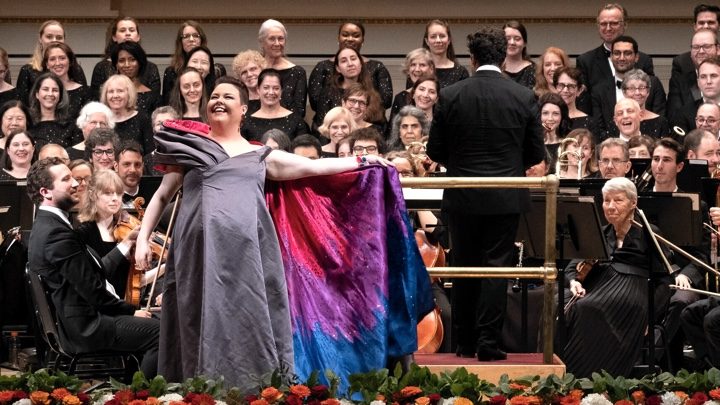
Jaho recovered nicely in the love duet from her signature opera Madama Butterfly although her frail, occasionally hollow soprano failed to always compete with Stephen Costello’s aggressively amorous Pinkerton. The tenor who as usual dressed down for the occasion marshalled his appealing tenor for a stentorian “Flower Song” from Carmen but exuded a confusing diffidence.
Like several others on the evening’s roster Barton had just performed at the Met but several recent marathon Orfeos didn’t prevent her from offering two intriguing aspects of Princess Eboli: first, a suave Veil Song in which she inventively negotiated its cruelly challenging melismas with some degree of success.
It was followed by a blistering “O don fatale” in which her epic searing high C-flat singed my ears. Greeted by the loudest roars of the night, it proudly took its place with other compelling “fatal beauties” I’ve heard at past Tucker galas by Goerke and Luciana d’Intino.
If the evening in the end turned out to be about two sopranos though, that’s perhaps as it should be, no? Although it may clearly be a minority opinion, I haven’t been all that crazy about the singing I’ve heard lately from 2019 Tucker Award winner Lisette Oropesa.
I’ve honestly enjoyed her in just about all of the nearly 20 roles she’s sung at the Met since her debut in 2006 as a Cretan Woman in Idomeneo including the very next year one of the very best Susannas in Le Nozze di Figaro I’ve ever heard.
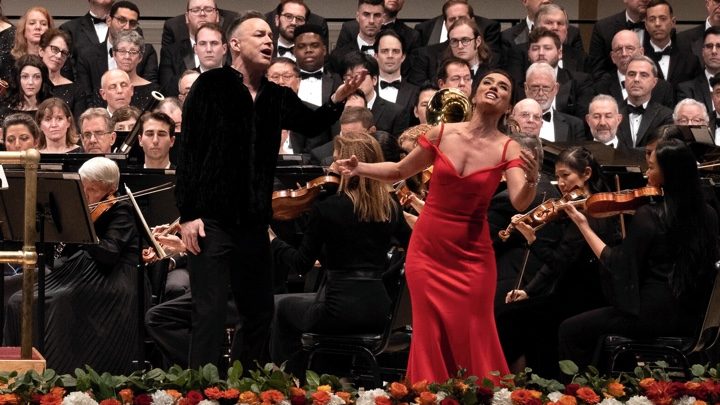
I was greatly relieved then to hear Oropesa doing so well at her Tucker coronation although her traversal of Amenaide’s beguiling entrance aria from Rossini’s Tancredi failed to dazzle and lacked the effortless coloratura élan one wanted. However a new gown did its work and her subsequent Puritani mad scene was a near-complete success with a haunting and haunted “Qui la voce” suffused with aching pathos.
If its final high note was harsh, her cabaletta featured truly interesting ornaments and bravura trills. The concluding Lucia sextet brought a compelling glimpse of her Scottish heroine that will surely make a NYC reappearance soon.
It then wasn’t Oropesa’s fault that another soprano—for me, at least—stole “her” evening. After a riveting Bess opening night, Angel Blue once again gave notice that there is no more stunningly beautiful voice before the public today. Louise’s lovestruck “Depuis le jour” proved its perfect vehicle; if one sometimes wanted to hear more of the words, Blue positively reveled in Charpentoer’s soaring phrases with seemingly effortless gleam.
But the real news was her partnering baritone Artur Rucinski in a thrilling fourth-act duet from Il Trovatore. I had never before heard Blue in Verdi but she gave notice that she may become one of the composer’s most sought-after advocates during the 2020s and beyond. Throwing in a blazing “Leontyne high C” as Leonora swore to give in to di Luna to save Manrico brought shivers and tears to this listener at least.
I could have easily left at that point in the middle of the program and been a very happy and satisfied camper but I would have missed Rucinski’s “Il balen” entrancingly sung with astonishingly endless breath. Why is he only being cast at the Met in supporting roles like Lescaut in Manon and Butterfly’s Sharpless when he is clearly capable of so much more?
While exiting Carnegie Hall all around me I heard the same comment again and again: “Why wasn’t this wonderful concert being broadcast or videotaped for television as so many past Tucker galas have been?”
Photos: Dario Acosta
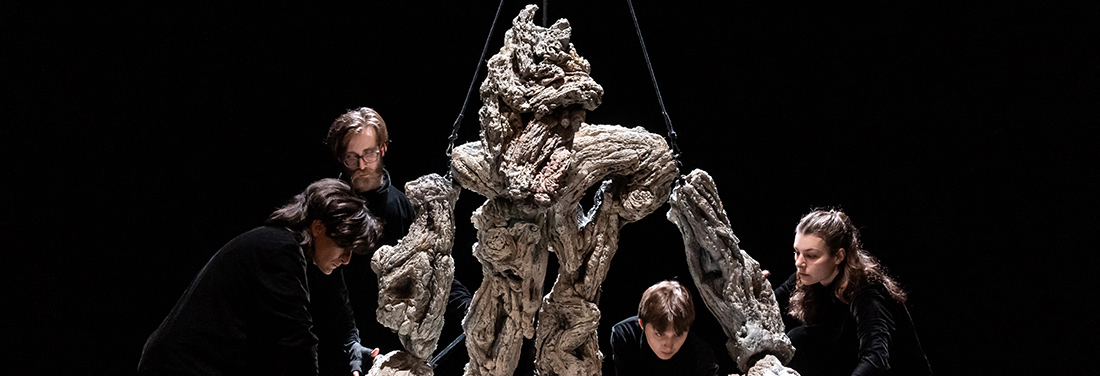
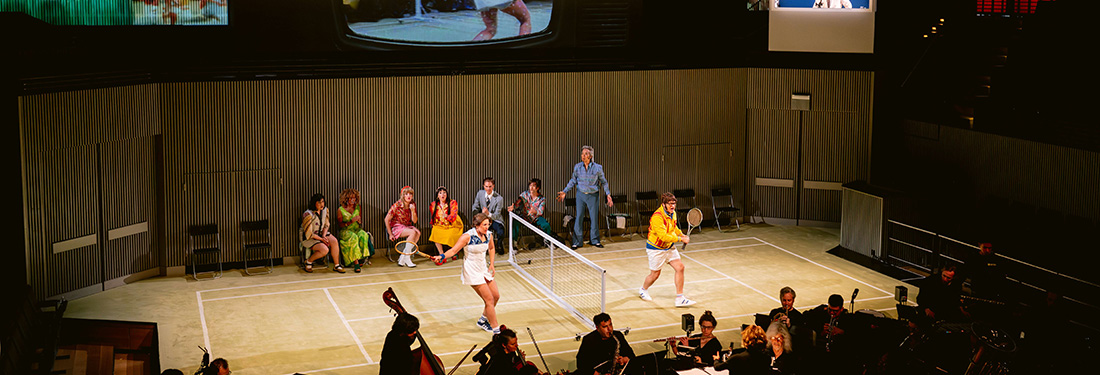
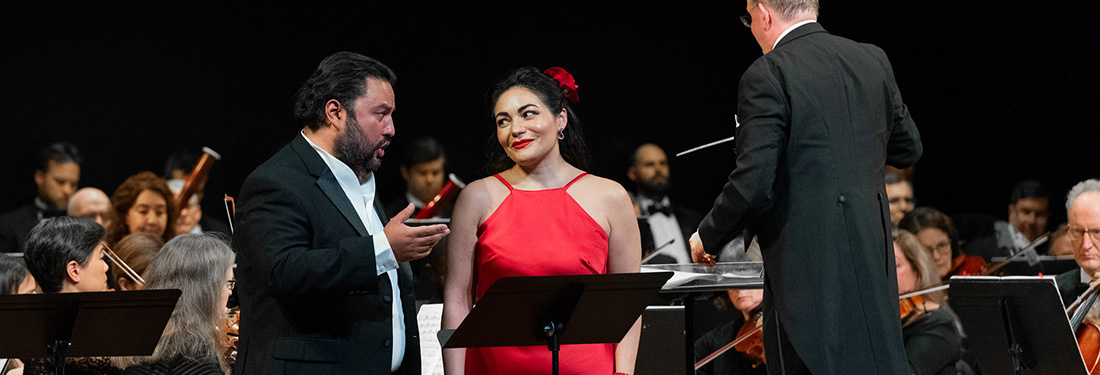
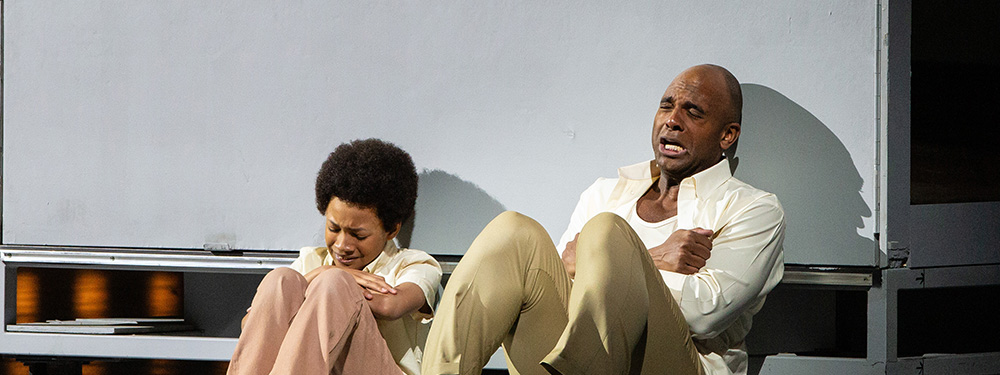
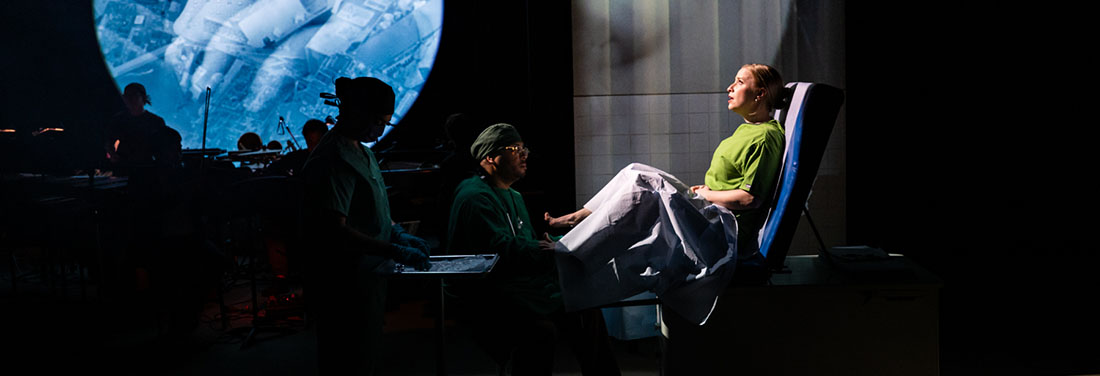
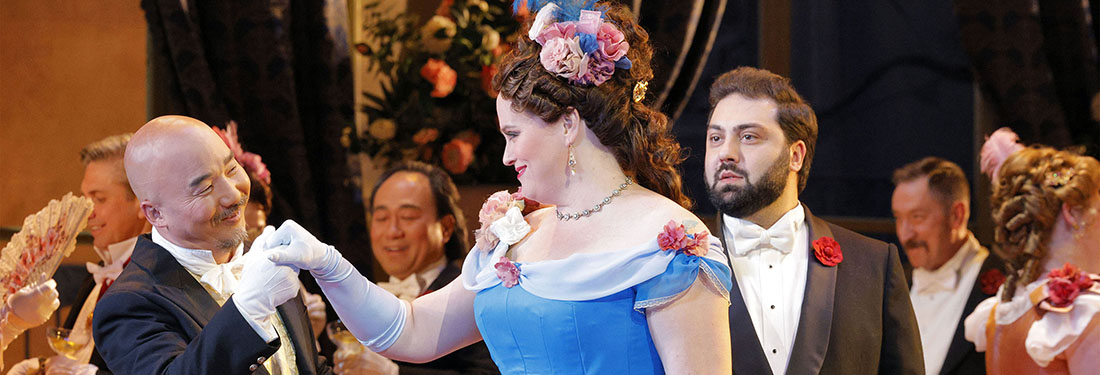
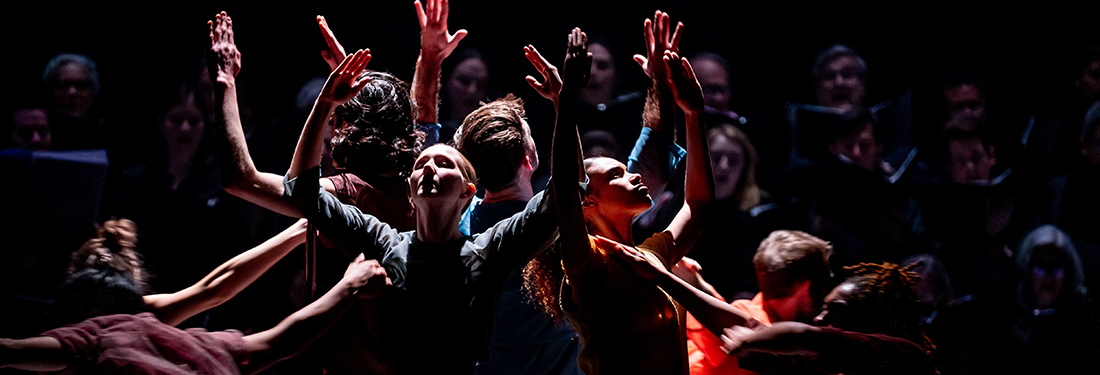
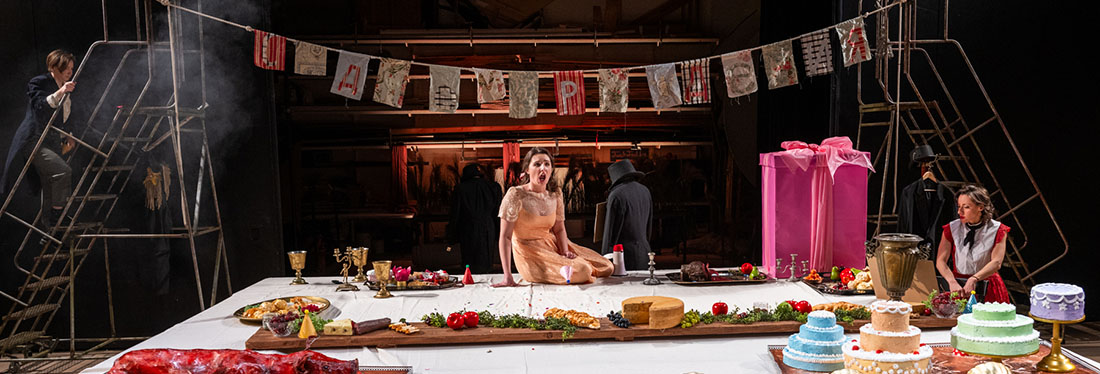
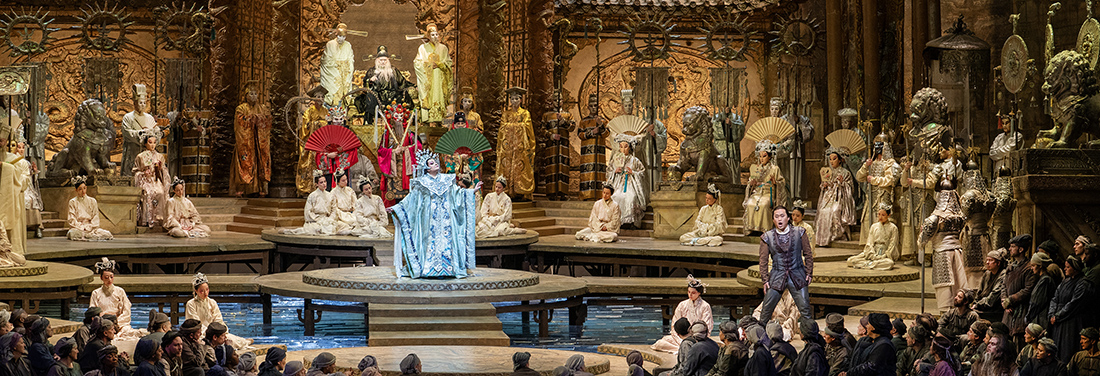
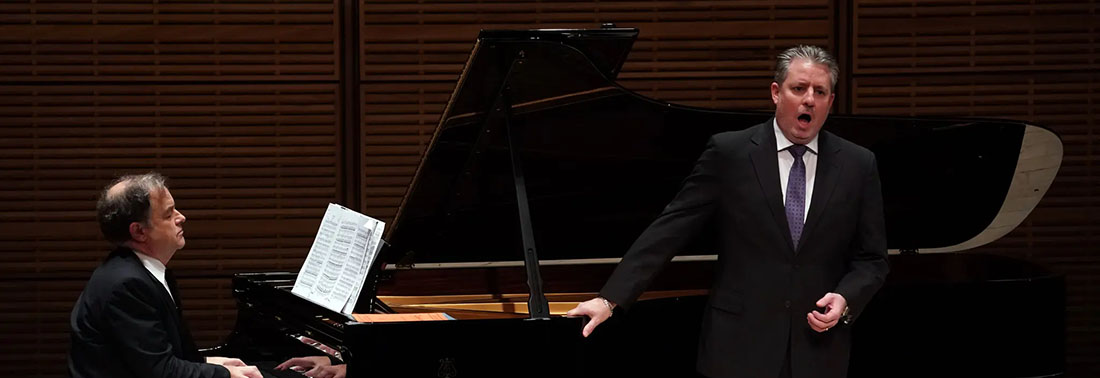
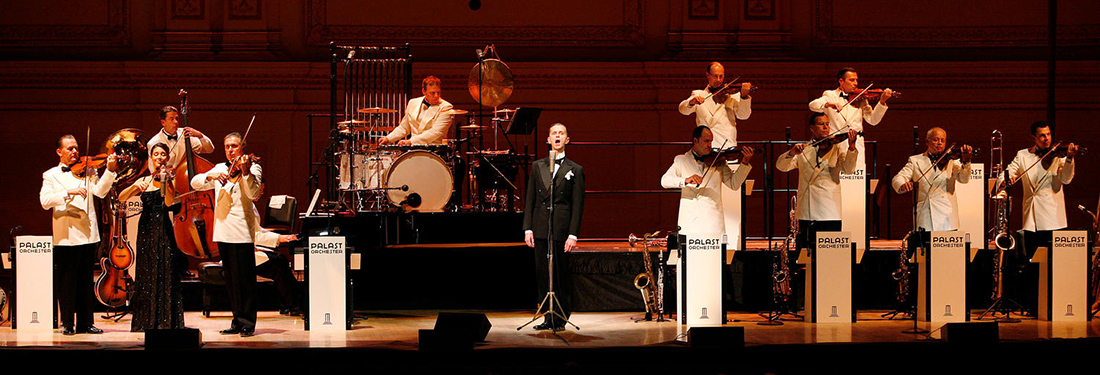
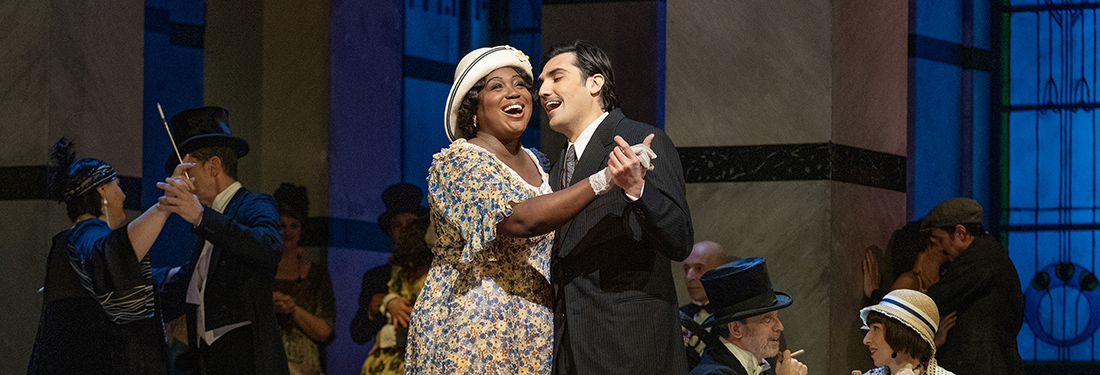
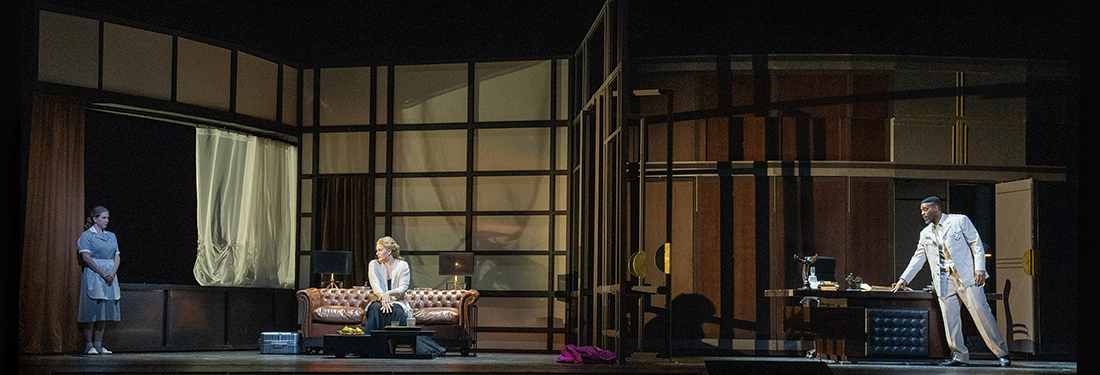
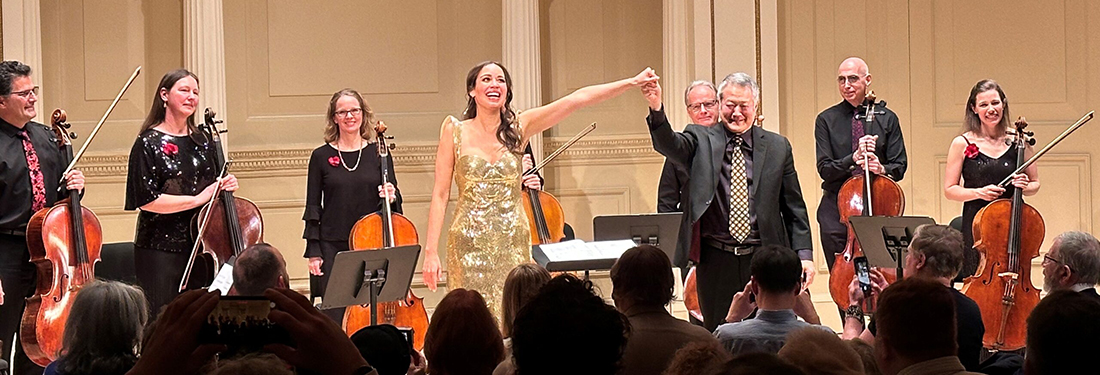
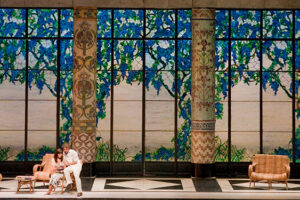
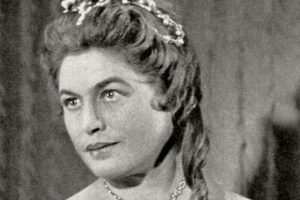



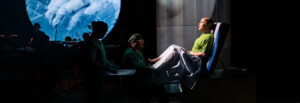
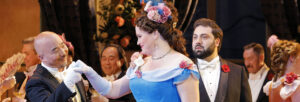



Comments